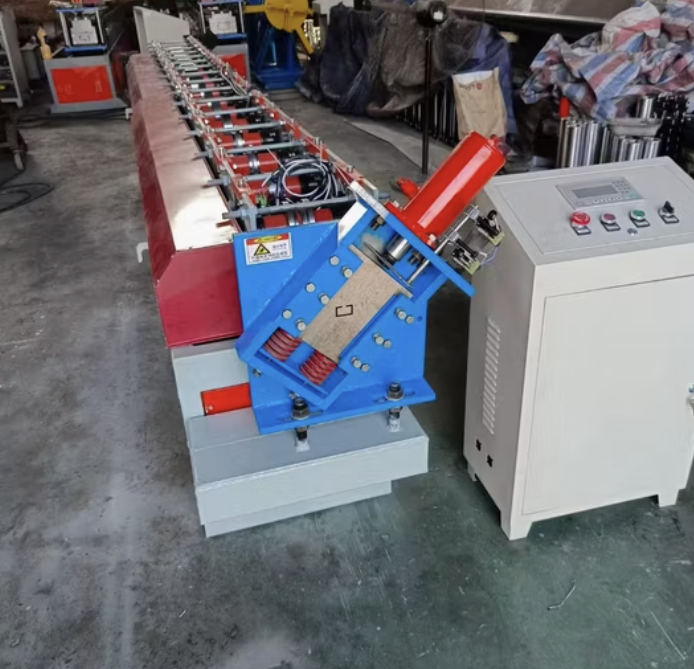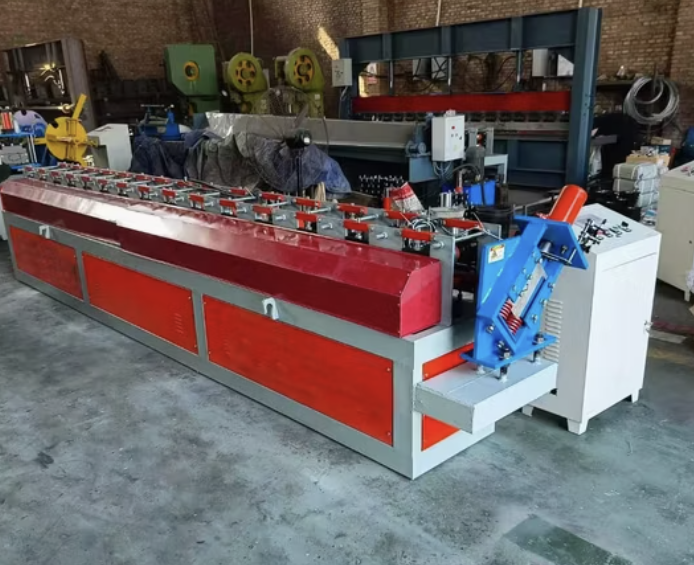To express an interest in this machine please submit the form below.

Not Sure What Machine You Need?
Select Your Profile, We'll Match It
Choose your desired profile drawing, and let Machine Matcher connect you with the best roll forming machine tailored to your needs.
Browse Profiles


Metal stud roll forming machines are essential equipment in the construction and interior design industries, widely used for producing high-quality metal studs. These studs form the framework for non-load-bearing walls, ceilings, and partitions. Latvia, with its growing construction sector, has a rising demand for lightweight, durable, and cost-effective metal stud systems. This guide provides a detailed overview of the machine, its specifications, and how it fits into Latvia's market.
A metal stud roll forming machine is a high-precision, automated device designed to convert steel coils into various metal stud profiles. The machine can create custom sizes and shapes, depending on construction requirements, ensuring compatibility with international standards and local construction practices in Latvia.
Below are the general specifications of a standard metal stud roll forming machine:
| Specification | Details |
|---|---|
| Material | Galvanized Steel, Aluminum, Stainless Steel |
| Material Thickness | 0.4mm - 1.2mm |
| Profile Width | 40mm - 100mm |
| Machine Speed | 20m/min - 50m/min (adjustable) |
| Roller Materials | High-grade GCr15 steel with chrome plating |
| Cutting System | Hydraulic cutting, pre-cut and post-cut options |
| Control System | PLC with touch screen (brands like Siemens or Mitsubishi) |
| Power Supply | 380V/50Hz (adaptable for Latvian power grid) |
| Motor Power | 7.5kW - 15kW (main motor) |
| Weight | 5,000kg - 8,000kg |
| Dimensions | 8m (L) x 1.5m (W) x 1.2m (H) |
| Optional Extras | Uncoilers, stackers, punching units, coil car |
A: The machine is designed to process galvanized steel, aluminum, and stainless steel, with material thickness ranging from 0.4mm to 1.2mm.
A: Yes, the machine operates on 380V/50Hz, which aligns with Latvia's standard industrial power supply.
A: The machine uses precision-engineered rollers and a PLC control system to maintain consistent dimensions and smooth edges.
A: The installation and setup process usually take 2–3 weeks, including training and testing.
A: Optional features like automated stackers, punching units, and remote PLC systems can significantly enhance productivity and ease of operation.
A: Regular lubrication of moving parts, inspection of rollers for wear, and software updates for the PLC system are recommended to ensure the machine runs efficiently.
A: Latvian industries can benefit from high-speed production, consistent quality, and reduced material waste, making it an ideal investment for construction companies and contractors.
Copyright 2026 © Machine Matcher.